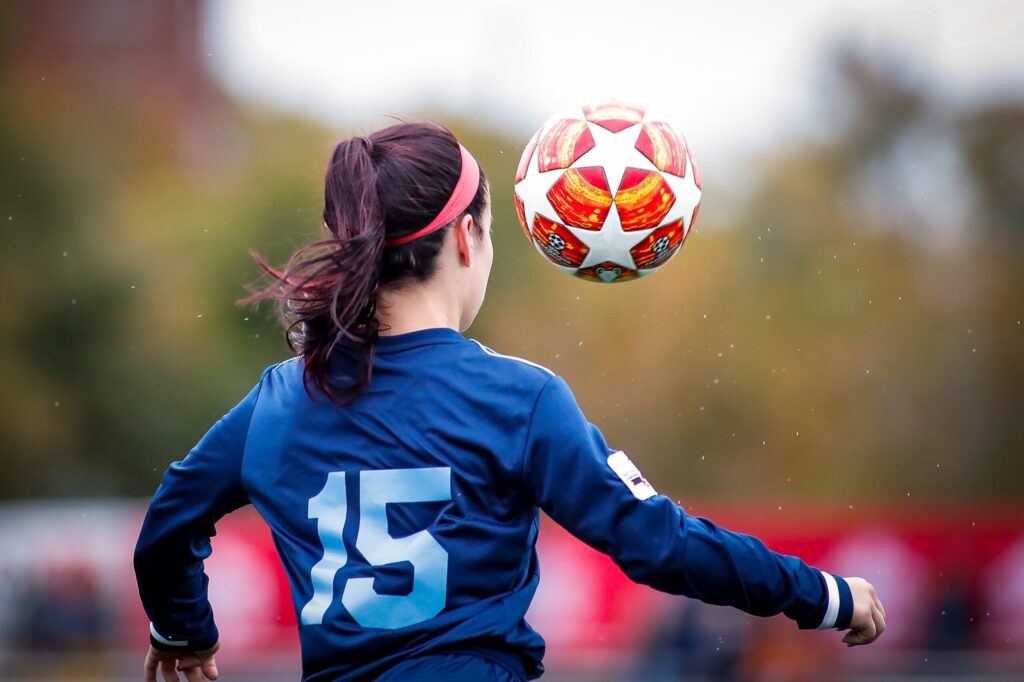I am (just about) in my twenties, and I was never given the opportunity to play football (or rugby, until I was in 6th form) whilst at school. Netball and hockey (which we were required to wear horrific tartan skirts for) were “girly sports”, with football and rugby far too rough for us delicate females. My younger brother never got the opportunity to play hockey until he went to University. He then realised that it could be just as rough as any other sport (and developed a much greater appreciation of the importance of a gum shield).
Ian Wright brought this up on the BBC coverage of the Women’s final. In live reporting, he said “whatever happens in the final now, if girls are not allowed to play football in their PE – just like the boys can – what are we doing?”
The Lionesses have since penned an open letter to Rishi Sunak and Liz Truss, stating “we are inspiring young girls to play football, only for many to end up going to school and not being able to play”. They end their letter “we – the 23 members of the England Senior Women’s Euro squad – ask you to make it a priority to invest into girls’ football in schools, so that every girl has the choice”.
According to data from the Football Association, only 63% of UK primary and secondary schools across the UK currently offer girls the chance to play football as much as the boys in PE. When it gets to the statistics for secondary school only, only 44% of girls get the same opportunities.
The nation is talking about this in the context of how hard it is for talented female players of “traditionally male” sports to play and be successful – and how that isn’t fair. But the repercussions of continuing to split “boys sports” and “girls sports” are much more far reaching.
We wouldn’t accept it if a school dictated that all boys should wear blue, and girls should wear pink. We’ve moved away from barbies for girls and action man for boys, stereotypes of male doctors and female nurses are now a taboo, and yet from a very early age schools instil an unnecessary and outdated message – that football/rugby is for boys.
Legally, it’s pretty rocky ground. The Equality Act 2010 allows for things to be gendered where there is a legitimate aim being pursued. When it comes to jobs, for example, it’s ok to stipulate that you need a female nurse to provide intimate care to female hospital patients, where there is a legitimate aim of protecting the decency of those patients.
The Government has produced guidance on interpreting the Equality Act 2010 for schools. This guidance, produced in 2014, states:
“Although the Equality Act forbids discrimination in access to benefits, facilities and services; the Act does contain an exception which permits single-sex sports. It applies to participation in any sport or game, or other activity of a competitive nature, where the physical strength, stamina or physique of the average woman (or girl) would put her at a disadvantage in competition with the average man (or boy). But while this exception might permit a mixed school to have a boys-only football team, the school would still have to allow girls equal opportunities to participate in comparable sporting activities” (emphasis added).
It seems that schools have taken it upon themselves to deem that netball/hockey are comparable sporting activities to football/rugby. But given the wording of the exception – that it applies when a girl would be put at a disadvantage in competition with a boy – it’s clear that this isn’t what the exception was trying to tackle. The exception seeks to deal with the issue of separating boys and girls for sport when they are too different physically to play safely together.
It’s got nothing to do with the choice of sport. The guidance in fact goes on to say: “Where separate teams exist, it would be unlawful discrimination for a school to treat one group less favourably – for example by providing the boys’ hockey or cricket team with much better resources than the girls”. It would be interesting to hear whether the Lionesses’ experience of playing football in their respective schools, if they were able to do so, led them to feel they were being treated equally to the boys.
Part of the issue is that it requires a whole-sale change across the education system – one school can’t change this on their own (their kids would have no one to play with). So maybe the Lionesses’ letter is the way to change things.
What is clear is that there is a big issue here, and one that is increasingly gaining traction in light of the Lionesses’ fantastic achievement.
If you have any questions about gender issues in your workplace, please contact our employment team or feel free to reach out to me directly at r.mahon@capitallaw.co.uk.




